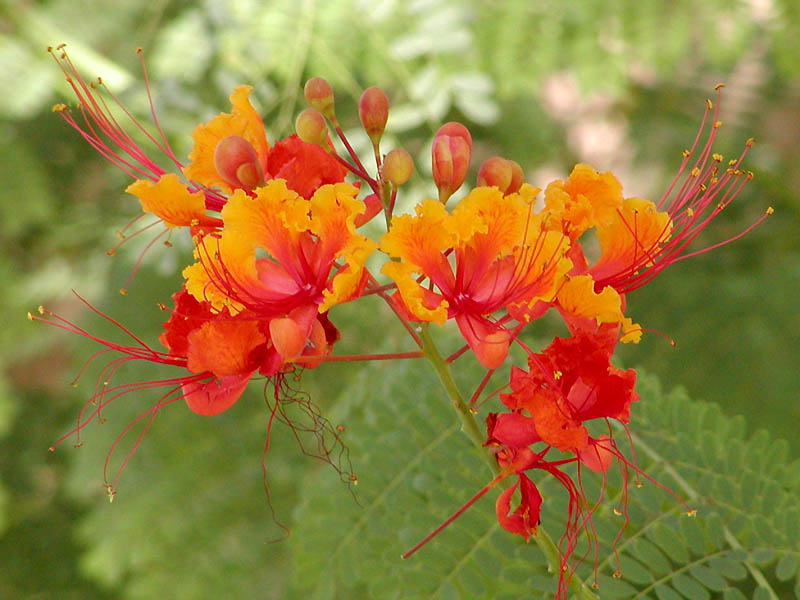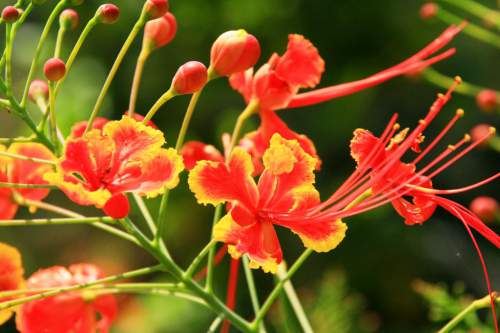Description
Description for Caesalpinia pulcherima cremica
The tall Mexican Red Bird Of Paradise – also known as “Pride of Barbados” – counts among the most beautiful and flourishing ornamental shrubs that can be cultivated as a quickly growing tub plant.
It produces bi-pinnate leaves and the colour of the flower varies from golden-orange to red.
Planting and care
The soil for Pride of Barbados plants does not have to be especially fertile or high in organic matter. Poor sandy soils are fine for this plant. Soil pH can be acidic, neutral or alkaline. Good drainage is extremely important, though. The water must drain quickly away from the root zone.
Where the soil is heavy clay and drains very slowly, consider growing the tree in a container or making a raised planting site. Either soil or peat-based potting mixes are fine for these plants as long as they contain sand, perlite and vermiculite to provide fast drainage. A 16-inch diameter by 16-inch deep container with drain holes in the bottom is suitable.
Caring for Caesalpinia pulcherima cremica
-
- Pride of Barbados plants should be watered deeply once or twice each week for the first year or two after planting. Once the plants become well established, they are highly drought-tolerant and should not need supplemental water but, for best growth and blooming, water them during prolonged droughts.
The young plants can be planted in standard soil, 1/5 sand added. During spring and summer the plant requires a lot of water on regular basis. Supply the plants with tub plant fertilizer every 10 to 14 days from April until October. To maintain a bushy growth the young plants have to be pruned often. After the third year of growth or after the first flowering, respectively, the plant should then be pruned once a year only.
Harvesting
A warm, sunny and wind protected place is ideal
Typical uses of Caesalpinia pulcherima cremica
Special features: Bonsai Suitability: No
This plant is attractive to bees, butterflies and/or birds
Culinary use: Seeds
GreenPods
The seeds of Caesalpinia pulcherrima are edible before reaching maturity.In some places, green pods are cooked and eaten.
Ornamental use: Feathery foliage, showy flowers and quick growth rate make Caesalpinia pulcherrima a very popular ornamental plant.
Medicinal use: The leaves of Caesalpinia pulcherrima are used as laxative, antipyretic.
Dried and powdered leaves are used in erysipelas.
The leaves have displayed anticancer activity in laboratory animals.
A diterpenoid, isolated from the root, also showed anticancer activity.
The flowers are anthelmintic and used for cough and catarrh.
The bark is emmenagogue and abortifacient.
Delivery: With in one day
Any questions, feel free contact us:







Reviews
There are no reviews yet.